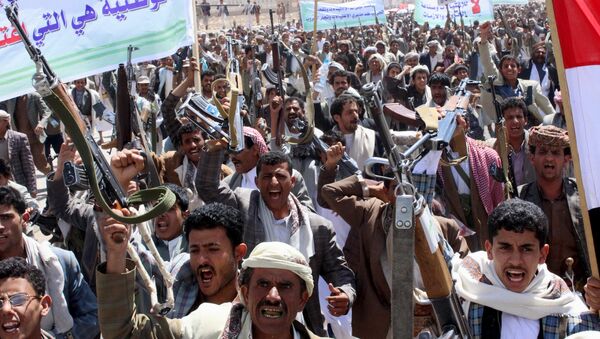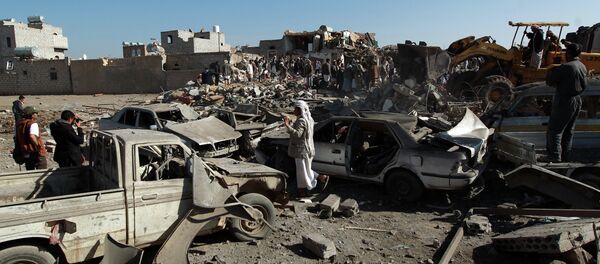"The idea that somehow or other the Houthis are a Shiite Iranian-backed force and Yemen is becoming a part of a Yemen Shiite influence <…> is simply untrue and doesn't reflect the current events or the history of the country," Executive Intelligence Review Senior Editor Jeff Steinberg told Sputnik on Thursday.
Throughout the entire conflict in Yemen, the US news reporting has been "built on a foundation of false allegations, false truths and outright lies," Steinberg added.
The role of the Iranians in Yemen should not be exaggerated, argued Barbara Bodine, former US Ambassador to Yemen, at a Thursday Bipartisan Policy Center conference on Yemen.
"The idea that the Houthi are an Iranian creation is equally ahistorical," Bodine said.
The former Ambassador also warned that the conflict in Yemen should "not be over-read as a regional proxy war." However, she acknowledged there are elements of a proxy war, particularly given the ongoing tensions between regional power players Saudi Arabia and Iran.
At the same time, Iran is able to "make life very difficult" for Saudi Arabia along its southern border by providing support to the Houthi rebels "at very little cost," she noted.
Moreover, Steinberg explained that many of the regional players "are being played and manipulated" on the basis prejudices between Sunnis and Shiites.
He warned that the efforts to exploit such fissures have created a situation where the entire region can be thrown into a state of permanent instability. The US State Department describes the Houthi rebels as directly supported by Iran. Leaders in the US Congress have publicly censured Iran alleging its role in destabilizing Yemen.
In September 2014, Houthi rebels ousted the US-backed Yemeni President Abd Rabbuh Mansour Hadi. Beginning on Wednesday, Saudi Arabia and a coalition of nine other mostly Arab states began airstrikes and military operations to roll back the Houthi influence in Yemen.



